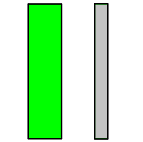| Liberal | |
| 1. n. (politics) A political party and philosophy | |
| 2. n. (politics) A member or supporter of a Liberal Party | |
| 3. n. (Canada) A member or supporter of the Liberal Party of Canada, or its predecessors, or provincial equivalents, or their predecessors | |
| 4. n. (British) A Liberal Democrat. | |
| 5. n. (UK, dated) A Whig. | |
| 6. adj. Of or relating to the Liberal party, its membership, or its platform, policy, or viewpoint. | |
| 7. adj. (now rare, outside, set phrases) Pertaining to those arts and sciences the study of which is considered to provide general knowledge, as opposed to vocational/occupational, technical< | |
| He had a full education studying the liberal arts. | |
| 8. adj. Generous; willing to give unsparingly. | |
| He was liberal with his compliments. | |
| 9. adj. Ample, abundant; generous in quantity. | |
| Add a liberal sprinkling of salt. | |
| 10. adj. (obsolete) Unrestrained, licentious. | |
| 11. adj. Widely open to new ideas, willing to depart from established opinions or conventions; permissive. | |
| Her parents had liberal ideas about child-rearing. | |
| 12. adj. (politics) Open to political or social changes and reforms associated with either classical or modern liberalism. | |
| 13. n. One with liberal views, supporting individual liberty (see Wikipedia's article on Liberalism). | |
| 14. n. (US) Someone left-wing; one with a left-wing ideology. | |
| 15. n. A supporter of any of several liberal parties. | |
| 16. n. (UK) One who favors individual voting rights, human and civil rights, and laissez-faire markets (also called "classical liberal"; compare libertarian). | |

